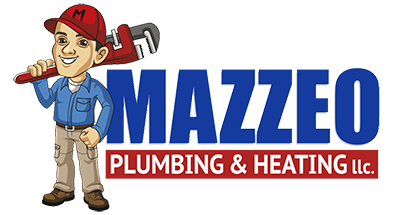Choosing the right plumber for emergency repairs is a critical decision that can significantly affect the outcome of urgent plumbing situations. An emergency plumber must provide timely, reliable, and skilled services to mitigate damage and restore function effectively. Understanding the essential qualities and credentials of an emergency plumber ensures a swift and satisfactory resolution during plumbing emergencies.
- An emergency plumber should be licensed and certified to guarantee professional standards.
- Response time is crucial; a reputable 24-hour plumber offers prompt service at any time.
- Experience in handling urgent pipe repair and other plumbing emergencies minimizes risks and further damages.
- Clear communication and transparent pricing aid in managing expectations during stressful repairs.
- Availability and accessibility distinguish reliable emergency plumbing services from standard providers.
Introduction
Plumbing emergencies demand immediate attention as they can lead to extensive property damage and costly repairs if not managed swiftly. Emergencies such as burst pipes, severe leaks, or water heater failures require professional intervention beyond routine plumbing tasks. Selecting the right plumber for emergency repairs involves evaluating their credentials, availability, and expertise to ensure reliable service when urgency is paramount. This article outlines the criteria for choosing a qualified emergency plumber, explains the significance of timely response in a plumbing emergency, and highlights key considerations to facilitate urgent pipe repairs with minimal disruption.
Defining Emergency Plumbing Services
Emergency plumbing services refer to immediate repair or maintenance work required to address critical plumbing failures that pose safety risks, cause property damage, or disrupt essential utilities. These situations typically occur outside regular business hours and necessitate rapid response to control water flow, prevent contamination, and restore functionality.
Characteristics of an Emergency Plumber
An emergency plumber must be a licensed plumber, possessing valid certifications that confirm compliance with local plumbing codes and professional standards. Licensure ensures technical competence and adherence to safety regulations, providing a reliable foundation for emergency interventions.
Availability as a 24-hour plumber is essential. Emergency plumbing situations do not adhere to standard office hours, making round-the-clock accessibility a critical service aspect. Quick deployment to the site can significantly reduce the extent of damage in scenarios like flooding or gas leaks.
Expertise in urgent pipe repair and related emergency tasks distinguishes competent emergency plumbers. Experience with diverse plumbing systems, familiarity with advanced tools and repair techniques, and the capability to diagnose complex failures are fundamental for effective emergency service.
Typical Plumbing Emergencies
Common plumbing emergencies necessitating urgent professional intervention include:
- Burst or leaking pipes causing water damage and flooding;
- Clogged or overflowing drains threatening sanitation and drainage;
- Faulty water heaters leading to sudden water supply disruption or safety hazards;
- Gas leaks presenting immediate safety concerns requiring specialized handling;
- Sewage backups posing health risks and demanding emergency cleanup and repair.
Criteria for Selecting the Right Emergency Plumber
Choosing an effective emergency plumber involves several decisive factors that impact service quality and reliability.
Verified Credentials and Licensing
License verification confirms the plumber’s legitimacy and proficiency. Credentials should be current, reflecting adherence to evolving plumbing codes and standards. Verification may involve consulting regulatory bodies or professional associations.
Availability and Response Time
An emergency plumber must offer 24-hour service with rapid mobilization capabilities. Response times directly influence the mitigation of damages in a plumbing emergency. Clear communication channels for immediate contact, such as phone or online request forms, are advantageous.
Experience and Specialization
Proven experience in handling a wide array of plumbing emergencies, including urgent pipe repair, enhances confidence in a plumber’s skills. Specialization in specific repair types, advanced diagnostic equipment usage, and familiarity with modern plumbing systems contribute to efficient solutions.
Transparency and Pricing
Transparent pricing structures prevent unexpected costs during emergency services. Providing upfront estimates, explaining service components, and outlining possible contingencies facilitate informed decision-making under pressure.
Reputation and Recommendations
Reputation derived from customer reviews, professional endorsements, and community recommendations serves as a reliable indicator of quality and trustworthiness. Many reputable emergency plumbers maintain online portfolios or ratings that offer insight into their service consistency and professionalism.
Market Context and Industry Standards
The emergency plumbing market is characterized by increasing demand for rapid, trustworthy services across residential and commercial sectors. Regulatory standards underpin the licensing processes to ensure safety and quality. Customers face growing expectations regarding immediate availability and technological competency in emergency situations.
The role of technology is significant, with plumbers employing advanced diagnostic tools, leak detection equipment, and innovative repair materials to expedite effective resolutions. Market competition encourages contractors to maintain high responsiveness and customer service standards.
Understanding Risks and Applications of Emergency Plumbing Repairs
Ignoring or improperly addressing plumbing emergencies can lead to exacerbated structural damage, increased repair costs, health hazards, and prolonged service interruptions. Engaging a qualified emergency plumber mitigates these risks by applying accurate assessments and sound repair practices.
Applications of emergency plumbing often involve temporary containment measures, such as shutting off water mains or applying quick sealing techniques, before executing permanent repairs. This staged approach reduces the impact on occupants and allows safe conditions for thorough maintenance.
Licensed plumbers are trained to comply with environmental and safety regulations, such as correct disposal of hazardous materials and adherence to water quality standards. Their expertise supports sustainable and compliant restoration of plumbing systems after emergencies.
Summary
In urgent and unpredictable plumbing situations, selecting the right emergency plumber is essential to ensure quick, effective, and professional repairs. Critical considerations include verification of proper licensing, 24-hour availability, relevant experience with urgent pipe repair, transparent pricing, and a strong reputation. Understanding the nature of plumbing emergencies and the market context highlights the importance of skilled intervention to minimize risks and damages.
For more detailed information and reliable emergency plumbing services, visit the latest updates and professional resources at Mazzeo Plumbing and Heating Services.
